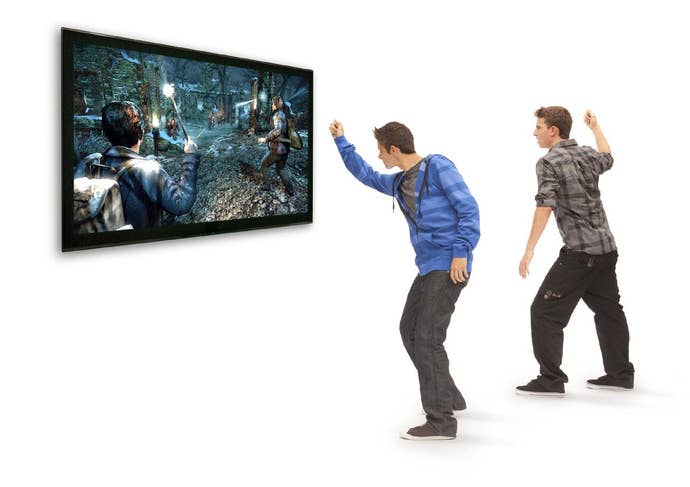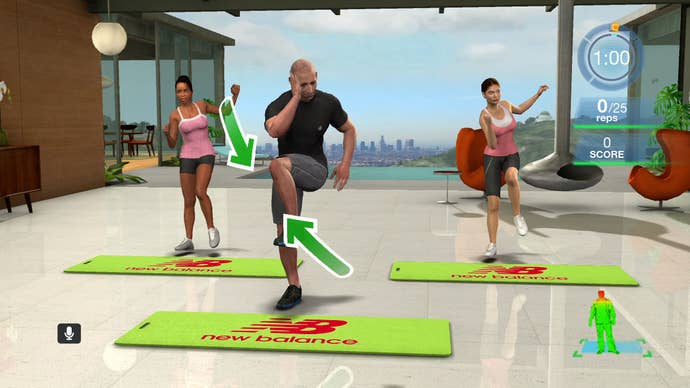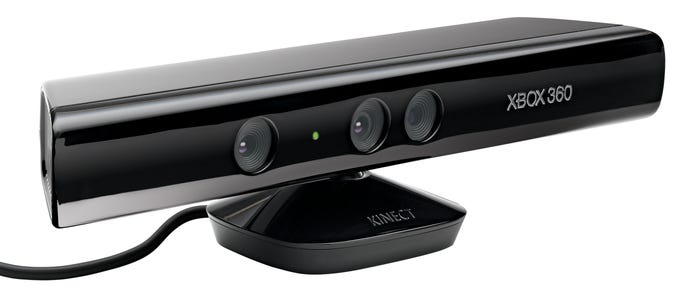Discuss! What Has the Kinect Meant for Gaming?
In the end, has it changed much at all? Share your thoughts!
This article first appeared on USgamer, a partner publication of VG247. Some content, such as this article, has been migrated to VG247 for posterity after USgamer's closure - but it has not been edited or further vetted by the VG247 team.
In June 2009, Microsoft announced the Kinect—an impressively advanced peripheral that integrated voice and gesture control into a device that seemed to take Nintendo's vision of motion control to the next level.
Three and a half years later, Microsoft is unbundling its once-touted peripheral from the Xbox One, begging the question: What has the Kinect meant for gaming? Has it meant anything at all? Check out our initial thoughts below, then feel free to share your opinion in the comments. We'll be jumping in throughout the day to contribute as well!
Being Harry Potter (Sort of), Kat Bailey

In 2010, I found myself in the unenviable position of reviewing Harry Potter and the Deathly Hallows Part 1 for the Xbox 360 and PS3.
I'll spare you the details of what was really an awful game; but for me, the coup de grace was the terrible Kinect control scheme, which essentially entailed flapping my arm while Harry fired spells machine gun-style. I still remember wandering into the demo room to watch me play—the Kinect was new at the time, after all—then slowly filtering back out again. That's been my overriding memory of Kinect ever since (well, that and the awesomely terrible Steel Battalion).
The problem with the Kinect, I think, is that it traffics in the same sort of novelty as the Wii Remote, but with even less functionality. Once that novelty wears off, it quickly becomes apparent that you're playing a game in the most inefficient way possible. Beyond that, there was the embarrassment factor. I wonder how many adults looked furtively around their apartment to make sure no one was watching before trying to call out an audible in Madden NFL?
To its credit, the Kinect has managed to find more of a niche than the Wii Remote, which has long since devolved into what amounts to a glorified NES controller on the Wii U. Lots of people love Dance Central, for example, which is the go-to example whenever someone deigns to defend the Kinect. But by and large, its impact on gaming is overstated. Even the "kids love it!" argument seems a bit overblown, since it seems like the majority of kids in technology-minded houses are raised on tablets and smart devices these days before eventually graduating to the Nintendo 3DS or a console of their own.
The Kinect being unbundled from the Xbox One says all that needs to be said about a device that—for all its hype—never had a big impact on gaming as a whole. But then, I'm not sure its potential was ever that great to begin with. Maybe if the gesture controls had been a hundred times more accurate, we could have played Fruit Ninja on our TVs instead of on our iPads. But by and large, waving at the air has never felt all that intuitive; and I've found calling out commands to embarrassing at best, completely inaccurate at worst.
I'm sure that Harmonix will continue making games for it. Of all the developers out there, they are the one studio that seems genuinely inspired by the Kinect. So long as that continues to be the case, it will probably continue to be spotted at parties. But having been demoted back to peripheral after being touted as an essential part of Microsoft's console strategy, it seems that the final verdict has been passed. Voice and gesture control may well have a place in gaming at some point in the future, but something tells me that it won't be the Kinect leading the charge.
A Solution to a Problem I Never Had, Jaz Rignall

Paranoid or overly-cautious, call it what you will, but I never liked the idea of a device that sits in my living room collecting data on how, when and what entertainment software I’m consuming, and that can watch what I’m doing and hear what I’m saying. To me, it sounds like something straight out of a George Orwell novel. Sure, I know this data goes nowhere, and nobody can see it. But I don’t care. I don't need or want this data collected, and that alone was enough to ensure my Kinect was never a welcome part of the family.
Putting my own silly paranoia aside, Kinect never really excited me anyway. For a start, the thing never understands a word I’m saying, so its voice commands are endlessly frustrating. Its gestural controls are also not that effective as an alternative to things I can do quickly and easily enough with a controller. Perhaps if I had my TV running through my Xbox One, I might feel differently, but really, waving my arms about is no less effort than pressing a few buttons.
So I just turned mine off and my only interaction with it is to dust it every couple of weeks. I kid you not. The only inconvenience is that it never recognizes me when I turn my Xbox One on, so I have to press a button to sign in. Boo freakin' hoo.
But I will say this. I like what Kinect is trying to do. Screw the listening and recording aspect - that’s just over-engineering. As a full-body controller for fitness instruction and dancing games, it’s fantastic. That’s what I think it’s real purpose is. Yeah, it’s a gaming device too, but its application is just too narrow or impractical for most games. Ultimately, it's at its best with kiddy, party and novelty games - though watch those flying fists, folks. Part of its issue is the distance you sit away from the screen, and the space it takes up when you’re using it fully. I’ve used Leap Motion, which is conceptually similar but works differently. It’s intended for closer interaction with a computer screen, and therefore the detector sits right under your hands. In many respects it works better because you feel a little more connected to what you’re doing. Kinect feels better as a full body controller, but just doesn't sit right as a finesse thing, because it's simply too wafty.
I'm sure there are more than a few disappointed people at Microsoft who simply can’t understand why us philistines don’t think Kinect is the next big thing, but it’s just not there yet. Maybe it’ll never be there. Personally, I’d much prefer to have a cut-down version sitting in my controller like a Leapmotion detector that I can put on a table in front of me - with the option to buy a Kinect if I was seriously into fitness and gaming. That really would work.
The Future of Home Entertainment... Not Gaming, Mike Williams

I admit, I like my Kinect. I own the Kinect for Xbox 360 and Xbox One and I don’t regret their purchase. Saying “Xbox On” as I walk in the living room and having the Xbox One boot up is pretty great. I enjoy being able to watch something on Netflix and say “Xbox Pause,” get up, grab a drink, and say “Xbox Play” upon sitting back down on the couch. That’s the kind of home entertainment future I like to see.
As a gaming device? The Kinect is limited at best and annoying at worst. There’s games where the Kinect is perfect, titles where having a full-body scan is integral to the experience. That includes Harmonix’ Dance Central and Ubisoft’s Just Dance. If you want to stretch the definition of “game,” you can probably also include Xbox Fitness on Xbox One in that list. When you have to get up and move, the Kinect shines; the difference between Just Dance on Wii and Xbox 360 is like night and day, and comparing the Wii title to the more accurate Dance Central is a complete shut-out.
The thing is, most developers in the console and PC industry aren’t making those types of games. They’re standing on a foundation built with controllers or the keyboard/mouse combo. When faced with justifying something like the Kinect, they add superfluous voice commands or awkward gesture control. Ryse on Xbox One went in the former direction, with players having to command troops via Kinect. Harry Potter and the Deathly Hallows: Part 1 had extra Kinect challenges that didn’t link up with the main game at all. Then there’s non-sports games like Fable: The Journey which try to make the Kinect the centerpiece of the experience, but they’re not very satisfying games.
Here's a list of Kinect-powered Xbox 360 games, and you’ll notice a bunch of family-friendly games, some fitness titles, and a number of AAA titles you probably didn’t even realize had Kinect features. That’s the final impact of the device. Useful for dancing or fitness titles, fun for some family games, and a complete afterthought in the games that dominate our industry. The loss of Kinect in the Xbox One hurts from a home entertainment device perspective, not a gaming one.

